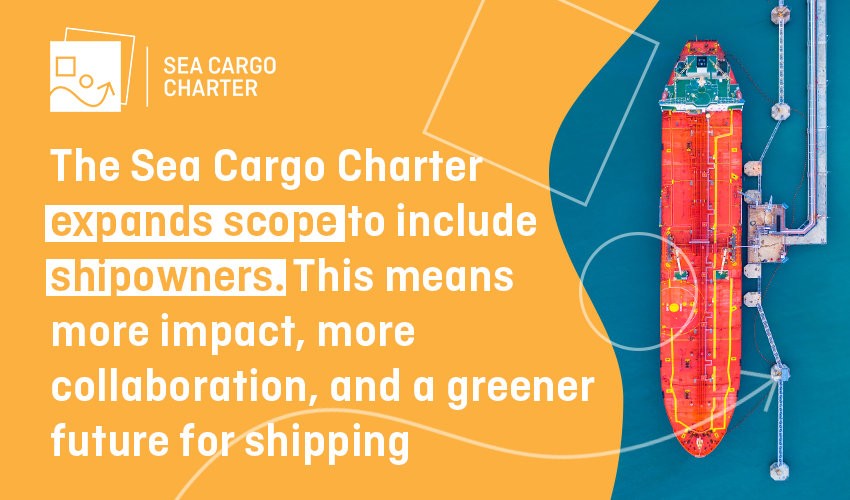Copenhagen, 2 April 2024 – The Sea Cargo Charter (SCC), a global framework for aligning chartering activities with responsible environmental behaviour to promote international shipping’s decarbonisation, is expanding its scope four years after its inception. With 37 signatories already on board, this expansion aims to increase the initiative’s impact on transparency and shipping decarbonisation across the entire industry by allowing charterers and shipowners to monitor and report their emissions under a common framework.
The Sea Cargo Charter provides a common, global baseline for assessing and disclosing the climate alignment of chartering activities of charterers and shipowners. It enables signatories to quantitatively evaluate and disclose whether their chartering activities align with internationally adopted climate goals, thus serving as a crucial tool to support responsible decision-making.
“The expansion of the Sea Cargo Charter to fully include shipowners signals a new milestone in the global endeavour to decarbonise shipping,” said Rasmus Bach Nielsen, Sea Cargo Charter Chair and Global Head of Fuel Decarbonisation at Trafigura. “By uniting owners and charterers under a common framework and methodology, we hope our initiative can further enhance transparency and foster collaboration across the industry, thereby amplifying its impact.”
The Charter, launched in 2020, establishes a common baseline and enables charterers and now shipowners to assess whether their activities align with internationally adopted climate goals, as outlined by the International Maritime Organization. This expansion to shipowners is about increasing impact and maximising collaboration between business partners, intending to expedite the transition to decarbonised shipping through more transparency across the whole industry. Notably, the Sea Cargo Charter is consistent with the ambitious goals set by the IMO’s 2023 GHG Strategy. Signatories will measure their climate alignment against the latest 2023 IMO ambitions for the first time in its forthcoming annual report, scheduled for publication in June.
“By enabling broader collaboration within the Sea Cargo Charter, we are forging a new path committed to sustainable practices and transparency for the industry,” said Eman Abdalla, Global Operations & Supply Chain Director at Cargill Ocean Transportation. ‘Widening access to the Charter acknowledges shipowners’ crucial role in reducing shipping emissions, enabling key stakeholders to report transparently within a unified framework and gain crucial data-driven insights to reduce emissions.”
Find press release here
For media inquiries, please contact:
Molly P. Hannon, Senior Communications Manager
Email: mph@globalmaritimeforum.org
Mobile: +45 53 76 67 87
About the Sea Cargo Charter
The Sea Cargo Charter is a global framework for assessing and disclosing the climate alignment of chartering activities. It establishes a common, global baseline to quantitatively assess and disclose whether chartering activities are in line with climate goals set by the UN maritime agency, the International Maritime Organization (IMO). The IMO’s initial greenhouse gas strategy prescribed that international shipping must reduce its total annual emissions by at least 50% of 2008 levels by 2050, whilst pursuing efforts towards phasing them out as soon as possible in this century. The IMO revised greenhouse gas (GHG) strategy adopted during MEPC80 in July 2023 sets a new ambition to reach net-zero GHG emissions from international shipping by or around, i.e. close to, 2050. The Sea Cargo Charter has recently aligned its ambition with these latest goals by agreeing to report in 2024 and onwards against (i) a full decarbonisation target in 2050, (ii) interim targets in 2030 and 2040 and (iii) the consideration of lifecycle emissions of fuels including further greenhouse gas (GHG) species.
The Sea Cargo Charter is one of three initiatives based on the same four Principles and developed with the Global Maritime Forum. Together with the Poseidon Principles and the Poseidon Principles for Marine Insurance, they share a common objective: fostering transparency on emissions reporting with the aim of contributing to reducing carbon emissions.

